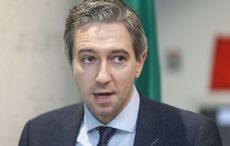Friday the 29th of June 2012 will go down as one of the most important dates in the history of the Euro currency. In the early hours of that fateful morning German resistance to a rational and comprehensive resolution to the Euro crisis was finally crushed. It will take some time for the full implications of this historic result to filter through to the markets but the fact that the dark cloud of dissolution of the Euro is now passing can only be positive.
What happened? Why did Angela Merkel the German Chancellor finally "blink in earnest" as suggested in our article two weeks ago? The answer is she was outmanoeuvred by Italy and Spain with the tacit support of France. In essence she was totally isolated. Here is what SPIEGEL, the German online newspaper had to say about events:
"Angela Merkel took a tough stance ahead of the EU summit, insisting she would not make concessions. But Italy and Spain broke the will of the iron chancellor by out-negotiating her in the early hours of Friday morning. Germany caved in to demands for less stringent bailouts and direct aid to banks."
The key to getting your way in tough negotiations, of course, is to find your opponents Achilles' heel. Italian Prime Minister Mario Monti and Spanish Prime Minister Mariano Rajoy did that on Thursday night and early Friday morning in Brussels. And the result is a euro-zone agreement to allow the common currency bailout funds to give direct help to ailing banks and to become active on sovereign bond markets to provide relief on the financial markets -- free of conditions for the countries in need of such aid.
With good reason Monti emerged from the late-night negotiations as a clear victor, having broken Chancellor Angela Merkel's resistance. Monti, together with Spanish Prime Minister Mariano Rajoy, secured easier access to the permanent euro-zone bailout fund, the European Stability Mechanism (ESM). Euro-zone member states which fulfill the budgetary rules laid down by the European Commission can now receive aid without agreeing to tough additional austerity measures. Strict oversight by the troika of the European Commission, European Central Bank (ECB) and International Monetary Fund (IMF) would no longer apply.
The agreement will allow the ESM to recapitalize troubled banks directly instead of loaning the bailout aid to national governments in exchange for austerity commitments. That model had been called into question after the EU agreed recently to provide Spain with €100 billion to prop up its struggling banks. Investors, however, became nervous about Madrid's ability to shoulder that debt, and interest rates on Spain's sovereign bonds had skyrocketed in recent weeks.
In addition, emergency aid funds will in the future be made available to stabilize the bond markets without requiring countries, providing they are complying with EU budget rules, to adopt additional austerity measures. Prior to the summit, Merkel had been against both steps, preferring to stick to the rules that had already been hammered out and guaranteeing strict oversight."
From my own perspective it is astonishing that it has taken so long for the twin elements of the crisis to be identified and segregated. Up until now, under German insistence, they had been joined at the hip. What do I mean by this? Well prior to Friday the 29th Dr. Merkel was insisting that any assistance to banks must go through Governments.
Badly needed banking bailouts from the ECB were thus being added to sovereign debt balances. These growing debt levels were affecting sovereign bond costs making raising money in the markets prohibitively expensive. This increased expense was bloating day to day government running costs despite the fact that "austerity" measures were being demanded by Germany. The whole cycle was deflationary, self defeating and illogical. Friday's agreement changed this nonsense and in summary has brought about two important "game changing" initiatives:
1. Banks can receive bailout funds from the ESM without affecting sovereign borrowing levels.
2. The new ESM fund can buy sovereign bonds directly thus lowering state borrowing costs.
As a result the risk of banking failure has been diminished and governments will be able to raise funds at reasonable rates when the need arises.
Now by no means am I suggesting that everything about the Euro crisis is behind us but using the words of Churchill: "now this is not the end. It is not even the beginning of the end. But it is, perhaps, the end of the beginning".
Finally the banking aspect of the problem has been separated from the sovereign bond element of the crisis. Why the process to identify and solve this fatal flaw in Euro policy has been so tortuous I will never know but better late than never I say. Politicians can now go on summer vacation happy that when they return in September a template in now in place upon which to build a secure and stable structure for the future maintenance of the Euro currency. They will thus be in a position to remove for once and for all the market risk of a potential demise of the Euro and with it a total collapse of the economies of the fledgling European Community. Such a prospect was incomprehensible and as a result of Friday's action by the European governments I think we can start to put this threat behind us. Will Mr. Market agree? That remains to be seen.
(C) 2nd July 2012 Christopher M. Quigley B.Sc., M.M.I.I., M.A.




Comments